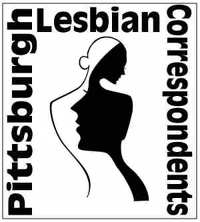Nearly 125 women of all ages, ethnicities, sizes and shapes turned out Friday evening for Pittsburgh's first-ever dyke march, a grassroots effort organized by two local queer women in less than one month.
The event kicked off with a rallyesque bang at the CMU lawn with some spoken word, a few djs and a lot of lady mingling. We marched from CMU to Pitt and back along the Forbes/Fifth corridor. The pace was a little fast for those of us who aren't uber-physical, but the energy was high as the parade participants chanted, cheered and enjoyed the delicious feeling of being amongst a crowd of women laying claim to the dyke mantle.
The organizers expected/hoped for about 40 participants especially as they relied mainly on word of mouth to promote the event. They got well over 100 women, some reportedly driving in from West Virginia to attend.
The event grew out of frustration that most spaces in the local community are defined by men, either the men who attend or the men who own the actual space. This holds particularly true for PrideFest where some sense that queer women are invisible. Some women just opt not to participate in the LGBT community or travel out of state to attend dyke-friendly events. Eli and Khalia, the organizers, chose to create dyke affirming spaces and settled on a dyke march to coincide with PrideFest.
They are both quick to point out that the PrideFest Committee and the Gay & Lesbian Community Center have been supportive, providing listings of the march on their calendars and spreading the word about the event. PrideFest organizer Jeff Freedman told the City Paper that he viewed the Dyke March as a mobilization of the community, something he claims is long overdue.
The event did face an organizing problem when the Pittsburgh City Police failed to show up on time for the start of the march even though the organizers had followed all of the city policies and procedures to request the permit and arrange the event. They tried repeatedly to contact the police and were unsuccessful. Rather than see the event collapse, they turned to allies and asked them to help block traffic counting on the fact that the permit would offset potential problems.
We marched up Forbes and all the way to Fifth Avenue near the Cathedral of Learning when one squad car from Pittsburgh's Zone 4 showed up at the event. Organizers showed him the permit and he allowed the event to continue. This sargeant stayed for about 20 minutes and then left the group to finish the parade unescorted.
The event ended back at the lawn where jubilant women spent some time decompressing from the bit of a high this sort of dyke-positive event had created. I spent some time talking with both Eli and Khalia to get their perspectives on the value of creating dyke friendly spaces. I found them both to be articulate, passionate and -- perhaps most importantly -- willing to take action to build the dynamics they think will strengthen the community.
What I did not find was any sense of man-hating or male-bashing or desire to completely disengage from the male homodynamic. I did an informal survey at PrideFest about the Dyke March and found that a lot of the women who did not attend had heard these sort of rumors about the event and the organizers. Fortunately, they were willing to listen to our experience and expressed a genuine interest in participating in the future once we reassured them that no one was planning to castrate gay boys.
These women have done a good job creating a dyke-affirming event. The next challenge is to reach out beyond their circles of genderqueer women to all those dykes who didn't attend, didn't hear about it and are pretty much mainstream. Their voices should be part of the dialogue because they too are being disregarded by those in power. There are lots and lots of suburban dykes in Pittsburgh complete with minivans, car seats and years of misogeny on thier backs.
More on that later when I discuss why being labeled an assimilationist is not cool ...





